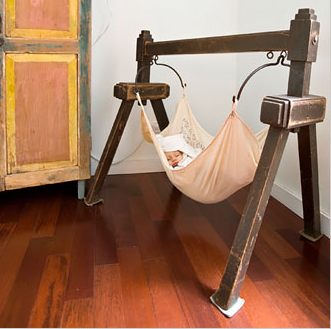Whereas prior to parenthood, you'd only visit a doctor if something is wrong with you, you now end up making your doctor's clinic a second home. Some might even end up with their doctor's and/or midwife's personal telephone number saved on speed dial!
When I discovered I was pregnant, I had a very short period of time to find me a doctor since I was only a few days away from going abroad for about a month. I tried to get an appointment with a few different doctors recommended by family and/or friends, but at the end, I managed to get an appointment sorted with a doctor who happened to be a family friend - and highly recommended by quite a few people.
The more time went by, the more apparent it started to become that soon I will no longer be the patient. The focus will be shifting on Creature the moment s/he is born. This could only mean one thing - it was time to start looking for a Paediatrician - a good one - preferably one whose office is close to where I live.
Where to begin, though?
First off, I had to start asking around.
Well, you can ask your obstetrician or midwife for recommendations. Hospitals, insurance companies, and medical schools also provide referrals to doctors. Friends, family, neighbours, co-workers - they're all good points of reference. If there are any pharmacies in your area, you can ask them too - especially since quite a lot of pharmacies tend to have a clinic attached to them.
Not having had to deal with this sort of situation beforehand, I had no idea what to look out for when trying to choose a paediatrician. I came across various hints & tips online. The following questions can do the trick if the paediatrician happens to be recommended by someone else:
- How does your child respond to the doctor?
- Does the doctor seem to enjoy working with children?
- Does the doctor seem to know about the latest medical advances?
- Does the doctor welcome questions?
- Does the doctor take time to discuss problems and listen to your concerns?
- If it's a group practise, do you know and like the other doctors?
- Is the office staff patient and helpful?
- How long do you usually have to wait?
- Is the waiting room pleasant and kid-friendly?
- Is parking plentiful and convenient?
- Is there anything you don't like or wish was different about your child's doctor or her practise?
On the other hand, if you go for a more direct approach, you can try and arrange a meeting with the paediatrician that you'd have found. In which case, you may wish to prepare a few questions to ask in advance. Here are some hints & tips on what to ask:
- Which clinics is the doctor affiliated with?
- Do the doctor's hours suit your schedule? You might prefer one who works certain days of the week or who offers evening or Saturday-morning hours.
- Does your doctor do house-calls?
- How does the office handle telephone enquiries? Does it set aside specific times for parents to call in with questions or is there an open advice line during office hours? And if staff members handle the enquiries, do they dispense their own advice or relay the doctor's?
- Does the doctor accept and answer questions by email?
- How long does it take to get a non-emergency appointment with the doctor?
- If there is more than one paediatrician at the clinic, how are appointments handled for children who are sick? Is there good chance your child will get to see his own doctor?
- Are there separate well-baby and sick-baby waiting rooms?
- Is the staff warm and helpful?
- How do you reach the doctor if your child gets sick after hours? When your doctor is not on call, who covers?
- Does the doctor have a subspecialty or an area of interest?
- Do you and the doctor have similar views on topics such as circumcision, breastfeeding, immunisations, alternative medicine, and parenting issues such as attachment parenting, co-sleeping, single parenthood, and daycare? If not, is the doctor open to — and supportive of — other opinions and approaches?
- Pay attention to such intangibles as the doctor's style. Do you want a doctor who offers choices and lets you decide which one works best for you — or would you be more comfortable with one who gives a lot of direction?
- Take note of the overall atmosphere of the office. Is it clean, warm, and inviting?
- If you drive, was parking a problem? If you don't, how easy is it to get to the doc's?
If you want to read further, you can clicky here for 7 signs of a good doctor, and here for 7 signs of a bad doctor.
To make your life easier, once you have actually selected a doctor you'd like to meet in person, go over this check list before you head off for your first appointment. Following the first meeting with your child's doctor, you can then refer to this check list that will help you understand better what to expect, and help you find the right questions to ask, and things to look out for, throughout the following appointments over the next three years.
At the end of the day, the most important thing of them all is this - follow your gut instinct. If you feel something is wrong, but the doctor says everything is ok













